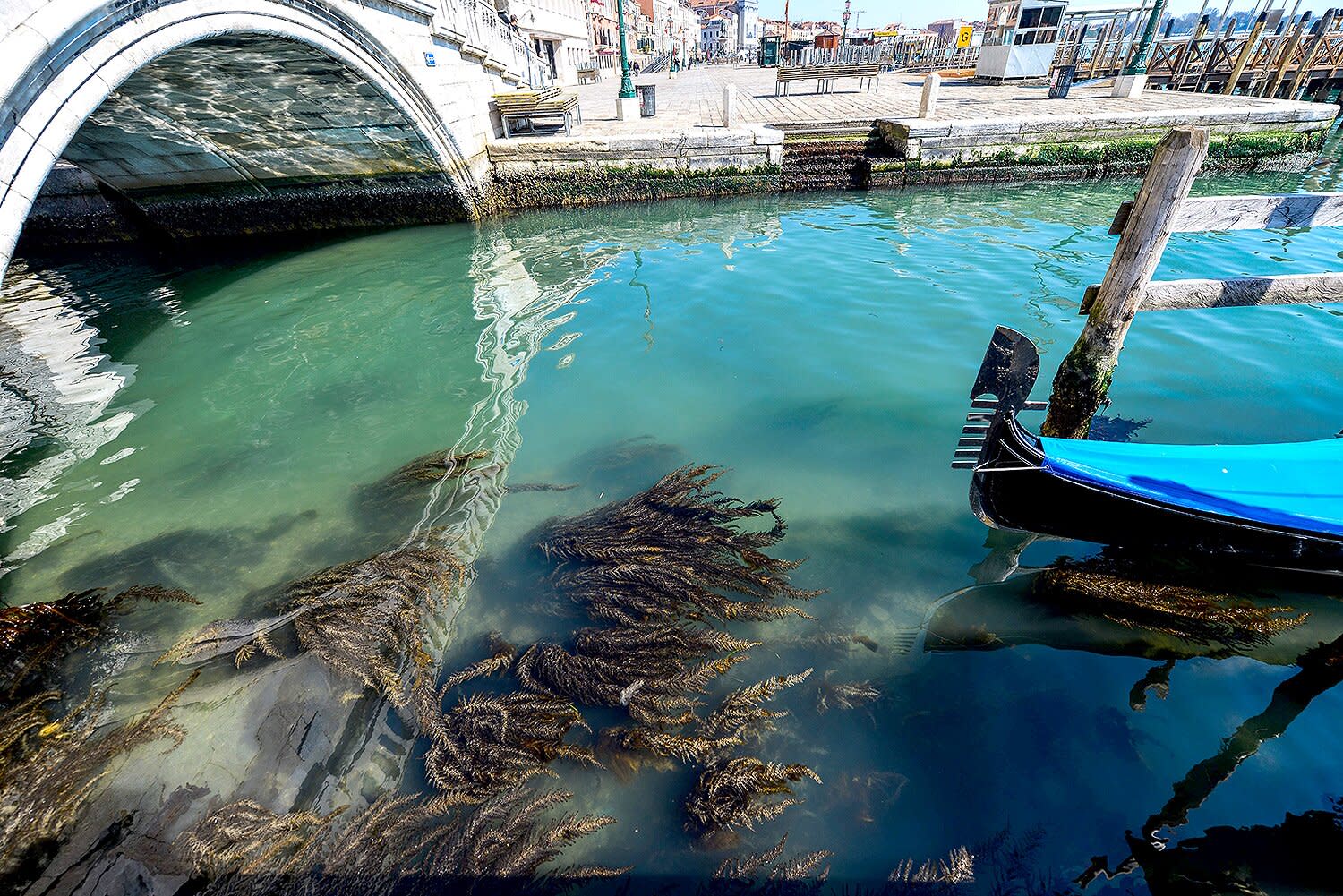
The incredible flora and fauna of the Venetian canals have been caught on video as the lack of boats on the waterways leaves the water to clear and natural life to thrive
The Italian city world-renowned for its canals has been in lockdown since early March, having been among the first regions in Europe to have been impacted by the Covid-19 coronavirus.
With a lack of activity on the waterways, lower emissions and less pollution, zoologist Andrea Mangoni has captured some of the nature thriving in the region’s canals – including a barrel jellyfish gliding gracefully through the waters.
Thanks to the exceptional calm of the canals of Venice due to the absence of boats, this jellyfish swam in the transparent waters near the baretteri bridge, and seemed to slip through the reflection of the buildings, incredibly motionless
Andrea Mangoni, zoologist
It comes as people share stories about the natural world’s response to international lockdown measures imposed during the Covid-19 outbreak.

Last month one viral video showed dolphins that had purportedly ventured into the venetian canals – footage that was later debunked.
Wild boars, while occasionally spotted around the Catalan city of Barcelona, have also been appearing in greater number during the outbreak.

10 facts about jellyfish…
- Jellies can clone themselves
If a jellyfish is cut in two, the pieces of the jellyfish can regenerate and create two new organisms. Similarly, if a jellyfish is injured, it may clone itself and potentially produce hundreds of offspring.
2. Some jellyfish are immortal
There are two phases to jelly life: the stationary polyp stage and the mobile medusa phase. It’s the medusa phase that we’re usually referring to when we talk about jellyfish. Typically, jellies start as polyps and develop into medusas, but the Turritopsis nutricula has earned it the nickname “the immortal jellyfish” for having the ability to travel backward to the polyp stage in times of stress.
3. Jellyfish can teach us about efficient underwater propulsion
The movements of bell-shaped jellyfish have provided researchers with a new understanding of propulsion. The flexibility of their umbrella-like bodies allow them to pulse upwards and downwards without expending much energy. Researchers have created biomimetic robots with flexible bells, which may one day lead to better undersea vehicles.
4. There’s a giant jellyfish called the pink meanie
The scientific name for this jelly is Drymonema larsoni, but its aggressive sting and distinctive colour have earned it the nickname “pink meanie.”
5. Jellyfish don’t have brains
Instead, jellyfish have nerve nets which sense changes in the environment and coordinate the animal’s responses.

6. Some jellyfish can glow in the dark
Many jellyfish have bioluminescent organs, which emit light. This light may help them in a number of different ways, like attracting prey or distracting predators.
7. Jellyfish are surprisingly good at shutting down nuclear reactors
In the past decade, jellyfish blooms have been responsible for shutting down several nuclear reactors, which often rely on ocean water intakes. The jellyfish swarms can clog the intake pipes, forcing facilities to stop operating temporarily.
8. Jellyfish will eat peanut butter
Two Aquarists in Dallas, Texas created a saltwater/peanut butter mix and fed it to moon jellies. Apparently, the jellies found this mix to be an acceptable source of protein. “We would love to claim we conducted this trial with noble purpose, but the truth is that we just wanted to make peanut butter and jellyfish simply to see if it could be done,” the researchers write.
9. Some jellyfish look like trash bags
They’re known as Deepstaria enigmatica, and are usually found in the Arctic seas.

10. Jellyfish might take over the ocean
You may have heard that jellyfish are taking over the world’s oceans due to over-fishing and global warming knocking marine ecosystems out of balance. Our oceans are indeed under these pressures however, there’s still debate about the jellyfish prediction among scientists.